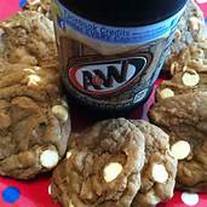 A little girl wanted to meet G!d. She knew it was a long trip to where G!d lived, so she packed her suitcase with chocolate chip cookies and a six pack of root beer and she started her journey. When she had gone about three blocks from her home she saw an old woman, sitting in the park staring blankly, or so it seemed, as some pigeons. The girl sat down next to her and opened her suitcase. She was about to take a drink from her root beer when she noticed that the old woman looked hungry, and the girl offered her a cookie. The old woman gratefully accepted it, and smiled at the girl. Her smile was so pleasant that the girl wanted to see it again, so she offered her a root beer. Again, the old woman smiled at her. The girl was delighted! And so it was, they sat there all afternoon eating and smiling, smiling and eating, never saying a word to each other. As it grew dark, the girl realized how late it was and she got up to leave, but before she had gone more than a few steps, she turned around, ran back to the old woman, and gave her a big hug. In turn, the old woman gave the girl her biggest smile ever. Filled with the warmth of that smile the girl ran home, and a short time later opened the door to her house. Her mother welcomed her home, surprised by the look of joy on the girl's face. She asked, "What did you do today that made you so happy?" She replied, "I had lunch with G!d." And before the mother could respond, she added, "And you know what? She's got the most beautiful smile I've ever seen." Meanwhile, the old woman, radiant with joy, returned to her home. Her son was stunned by the look of peace on her face and asked her, "Mom, what did you do today that made you so happy?" She replied, "I ate cookies in the park with G!d." And before her startled son could respond, she added, "And you know what, she's much younger than I expected." ººººººººººººººººººººººººººººº Please consider offering a tax deductible donation to support this project and the work of DC's Jewish Renewal community Minyan Oneg Shabbat. A shout out to Judy Young for her generous monthly support of this project. ººººººººººººººººººººººººººººº My late rebbe, R' Zalman Schachter-Shalomi, zt"l, (זכר צדיק לברכה) was a master storyteller. He taught, in the name of Abraham Joshua Heschel zt"l: "a mayse is a story in which the soul surprises the mind". "A Year of Stories" is dedicated to his memory. I invite you to forward the link to these stories so that they find their way into the hearts of other listeners and tellers. ∞∞∞∞∞∞∞∞∞∞∞∞∞∞∞∞∞ If you would like to be added to the growing list of "Year of Stories" followers, let me know at [email protected], with "Year of Stories" in the subject line.
1 Comment
My mother did not live to see her 99th birthday, having died 2 weeks ago. Time of shloshim is already flying by. Here is a photo taken at a truly simcha-dik event. On December 18th 1966, my family celebrated two life cycle events: One was a party in honor of me having become bar mitzvah, the other was my sister's wedding. Yup, both on the same day! (Simcha Daniel, yes, I did sing "Vimale") My celebration had already been planned at Singer's Country Club in Spring Valley, NY. A few months prior my sister Ellen and her soon to be husband Bob announced their engagement, asked me if I didn't mind "sharing"my party, and the rest was history.
Pictured from right to left: my brother Franklin, now Ephraim; my brother in law Bob; my sister Ellen; my grandmother Annie: my mother Elsie, me, and my father Adolph. Here's a true fact - the names my parents were given at birth are not the names that anyone knew or called them by. Adolph was born Abraham, and Elsie was born Lena. My mother explained that all she knew was that her mother Annie had enrolled her in school by the name Elsie. No one remembers why my father became Adolph, yet another question I wish I had asked him while he was alive (my father died in 1990). I will always be left to wonder why, after the Second World War, he didn't use the name Abraham? One more thing about names. Sometimes my mother didn't call my father "Adolph". She called my father "Dudda". Why? My father was a twin, and my grandmother Sarah, who immigrated from Poland speaking Yiddish, could not fully pronounce the word "brother." So when she called out the window for the twins to come home, she would call "dudda...dudda". Happy birthday Mom - may your soul continue to ascend to its heavenly source. Your loving son, Marko Shmarko 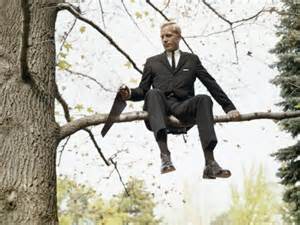 There are times in which I see my work as a Mashpiah - Jewish spiritual director - in the last line of this story. Enjoy. ººººººººººººººººººººººººººººº Once there was a king who received a gift of two magnificent falcons from Arabia. They were peregrine falcons, the most beautiful birds he had ever seen. He gave the precious birds to his head falconer to be trained. Months passed and one day the head falconer informed the king that though one of the falcons was flying majestically, soaring high in the sky, the other bird had not moved from its branch since the day it had arrived. The king summoned healers and sorcerers from all the land to tend to the falcon, but no one could make the bird fly. He presented the task to the member of his court, but the next day, the king saw through the palace window that the bird had still not moved from its perch. Having tried everything else, the king thought to himself, "May be I need someone more familiar with the countryside to understand the nature of this problem." So he cried out to his court, "Go and get a farmer." In the morning, the king was thrilled to see the falcon soaring high above the palace gardens. He said to his court, "Bring me the doer of this miracle." The court quickly located the farmer, who came and stood before the king. The king asked him, "How did you make the falcon fly?" With his head bowed, the farmer said to the king, " It was very easy, your highness. I simply cut the branch where the bird was sitting." ººººººººººººººººººººººººººººº Please consider offering a tax deductible donation to support this project and the work of DC's Jewish Renewal community Minyan Oneg Shabbat. A shout out to Judy Young for her generous monthly support of this project. ººººººººººººººººººººººººººººº My late rebbe, R' Zalman Schachter-Shalomi, zt"l, (זכר צדיק לברכה) was a master storyteller. He taught, in the name of Abraham Joshua Heschel zt"l: "a mayse is a story in which the soul surprises the mind". "A Year of Stories" is dedicated to his memory. I invite you to forward the link to these stories so that they find their way into the hearts of other listeners and tellers. ∞∞∞∞∞∞∞∞∞∞∞∞∞∞∞∞∞ If you would like to be added to the growing list of "Year of Stories" followers, let me know at [email protected], with "Year of Stories" in the subject line. My week of shiva was a profound experience, and I am grateful to everyone who took the time to touch base with me, whether by phone or FaceBook, e-mail or of course, by paying a shiva call or by your presence at one of the three shiva minyanim at my home. From time to time I will be sharing some reflections on my mourning journey. I welcome you to share thoughts from your own shiva experience. If you do so, please post it on this blog as opposed to Facebook. The power of Jewish practice during mourning. I write this as thousands mourn those slain in this week’s Jerusalem massacre. I cannot begin to imagine the grief of those who will be mourning there in the days and weeks to come. My experience is obviously a different one. What is common is that community will gather around the mourners and hold them within the structure that has been built with חסד- kindness - by those who came before us. How indebted we are to their insight, and to the container that is shiva, shloshim, and shana. Already I have begun to sense the process beginning to work - from mourning, to harvesting, to integration. The process is not a linear one, and I can powerfully feel that it will remain active within me for a long time to come. ¨¨¨¨¨¨¨¨¨¨¨ I was pleasantly surprised by the emotional power of Facebook. Many of you read my original post about my mother’s passing. It received the highest number of hits of anything I have ever posted, over 300 in 3 days on FB and on Weebly where my blog is hosted. Many of you posted condolences, and some of you IM’d me, including just this second, someone who I have not spoken to or seen for perhaps 25 years and who has never met my mother! He wrote: “Just saw your brother in law in Denver and he told me about your recent loss. I am very sorry to hear the news. May you and your family be blessed with nechama, comfort and support.” How blessed I am. News travels fast in our small, tightly woven Jewish world. I sometimes joke that there are only 36 Jews in the world and we all run around in circles, making contact with each other over and over again. As a mourner, I feel sonsolation from being held by my community. ¨¨¨¨¨¨¨¨¨¨¨¨ I could not help but notice that several people commented on my sister’s FB page: “Is there anything that I can do?” or “Please let me know what I can do?” Not to say that we Jews have a monopoly on kindness, but these offers came from non Jews. Yidn are blessed to have a response in the form of action already put in place by tradition. Renée shared with me that a non-Jewish friend of hers was so moved by Renée’s experience during the mourning process after her mother died that the friend took on a similar practice after the loss of a loved one in her life. Such is the power of our tradition. We don’t offer - we do. One friend offered to pick me up from the train station when I arrived post burial in DC from NJ; another sent a platter of food that lasted all week; another showed up with a carload of food that could feed an entire town, bought by monies collected from 8 other friends; each night 25-30 friends showed up for shiva minyanim, listened to me tell stories about my mom, sang with me, prayed with me, laughed with me, and then knew when to leave, all except the few who lingered to ease my transition from full house to being alone with my thoughts once again. The Zen master Hakuin was praised by his neighbors as one living a pure life.
A beautiful Japanese girl whose parents owned a food store lived near him. Suddenly, without any warning, her parents discovered she was with child. This made her parents very angry. She would not confess who the man was, but after much harassment at last named Hakuin. In great anger the parents went to the master. “Is that so?” was all he would say. When the child was born, the parents brought it to the Hakuin, who now was viewed as a pariah by the whole village. They demanded that he take care of the child since it was his responsibility. “Is that so?” Hakuin said calmly as he accepted the child. A year later the girl-mother could stand it no longer. She told her parents the truth – that the real father of the child was a young man who worked in the fishmarket. The mother and father of the girl at once went to Hakuin to ask his forgiveness, to apologize at length, and to get the child back again. Hakuin was willing. In yielding the child, all he said was: “Is that so?” ºººººººººººººººººººººººººººººººººººº My late rebbe, R' Zalman Schachter-Shalomi, zt"l, (זכר צדיק לברכה) was a master storyteller. He taught, in the name of Abraham Joshua Heschel zt"l: "a mayse is a story in which the soul surprises the mind". "A Year of Stories" is dedicated to his memory. I invite you to forward the link to these stories so that they find their way into the hearts of other listeners and tellers. ∞∞∞∞∞∞∞∞∞∞∞∞∞∞∞∞∞ Please consider offering a tax deductible donation to support this project and the work of DC's Jewish Renewal community Minyan Oneg Shabbat. A shout out to Judy Young for her generous offering in support of this project. ≠≠≠≠≠≠≠≠≠≠≠≠≠≠≠≠≠≠ If you would like to be added to the growing list of "Year of Stories" followers, let me know at [email protected], with "Year of Stories" in the subject line. My mother, Elsie Novak, died peacefully in her sleep last Thursday evening the 6th of November at 10:10pm, the 14th day of Cheshvan. My mother often shared with me her deepest fear that the death process be a painful one. Thank G!d, it was quite the opposite.
What I sensed over her last few days was that her soul was disentangling itself from her body, as if it were undoing the stitching that attached it to its physical container. In BT Moed Katan 28a, we find this story: “Rava was seated at the bedside of Rabbi Nachman, and he saw that his teacher was dying. Said Rabbi Nachman to him, ‘Please tell the Angel of Death not to torment me.’ To which Rava replies, “Why are you asking me to do this for you? Are you not an ‘adam chashuv’, a person of status? Rabbi Nachman responds and says, “Before the Angel of Death, who is esteemed, who is regarded, who is distinguished?” Rava then says, “Will you show yourself in a dream to me after you die?”, and Rabbi Nachman replies that he will if he can. Sure enough, some time after he dies, Rabbi Nachman appears to Rava in a dream. Rava asks him the question that we would all like to ask if we could. He says to him, “Did you suffer much pain while you were dying?” Rabbi Nachman says; “It was like removing a hair from a glass of milk.” A few years ago I started to include in my daily davvenen, in the paragraph that begins with shma koleynu, my prayer that when it was time for my mother's soul to return to its' source, that it do so without pain, like "removing a hair from a glass of milk." I don't know which hurts more, when prayers are realized or when they are not, because my heart is broken open and my tears flow like rain from the very notion that my prayer has been answered. Thanks to all who have written to express your condolences. Everyone should be as blessed as I am, to feel held in times of sorrow by sacred community, both near and far. I look forward to sharing more with you about my mom in the coming year. This is a well known story, from M. Scott Peck's book, The Different Drum. I include it in this series because (a) I like it and (b) it is used so often within the context of community building. Have you ever had the occasion to use it?  The story concerns a monastery that had fallen upon hard times. Once a great order, as a result of waves of antimonastic persecution in the seventeenth and eighteenth centuries and the rise of secularism in the nineteenth, all its branch houses were lost and it had become decimated to the extent that there were only five monks left in the decaying mother house: the abbot and four others, all over seventy in age. Clearly it was a dying order. In the deep woods surrounding the monastery there was a little hut that a rabbi from a nearby town occasionally used for a hermitage. Through their many years of prayer and contemplation the old monks had become a bit psychic, so they could always sense when the rabbi was in his hermitage. "The rabbi is in the woods, the rabbi is in the woods again " they would whisper to each other. As he agonized over the imminent death of his order, it occurred to the abbot at one such time to visit the hermitage and ask the rabbi if by some possible chance he could offer any advice that might save the monastery. The rabbi welcomed the abbot at his hut. But when the abbot explained the purpose of his visit, the rabbi could only commiserate with him. "I know how it is," he exclaimed. "The spirit has gone out of the people. It is the same in my town. Almost no one comes to the synagogue anymore." So the old abbot and the old rabbi wept together. Then they read parts of the Torah and quietly spoke of deep things. The time came when the abbot had to leave. They embraced each other. "It has been a wonderful thing that we should meet after all these years, "the abbot said, "but I have still failed in my purpose for coming here. Is there nothing you can tell me, no piece of advice you can give me that would help me save my dying order?" "No, I am sorry," the rabbi responded. "I have no advice to give. The only thing I can tell you is that the Messiah is one of you." When the abbot returned to the monastery his fellow monks gathered around him to ask, "Well what did the rabbi say?" "He couldn't help," the abbot answered. "We just wept and read the Torah together. The only thing he did say, just as I was leaving --it was something cryptic-- was that the Messiah is one of us. I don't know what he meant." In the days and weeks and months that followed, the old monks pondered this and wondered whether there was any possible significance to the rabbi's words. The Messiah is one of us? Could he possibly have meant one of us monks here at the monastery? If that's the case, which one? Do you suppose he meant the abbot? Yes, if he meant anyone, he probably meant Father Abbot. He has been our leader for more than a generation. On the other hand, he might have meant Brother Thomas. Certainly Brother Thomas is a holy man. Everyone knows that Thomas is a man of light. Certainly he could not have meant Brother Elred! Elred gets crotchety at times. But come to think of it, even though he is a thorn in people's sides, when you look back on it, Elred is virtually always right. Often very right. Maybe the rabbi did mean Brother Elred. But surely not Brother Phillip. Phillip is so passive, a real nobody. But then, almost mysteriously, he has a gift for somehow always being there when you need him. He just magically appears by your side. Maybe Phillip is the Messiah. Of course the rabbi didn't mean me. He couldn't possibly have meant me. I'm just an ordinary person. Yet supposing he did? Suppose I am the Messiah? O God, not me. I couldn't be that much for You, could I? As they contemplated in this manner, the old monks began to treat each other with extraordinary respect on the off chance that one among them might be the Messiah. And on the off off chance that each monk himself might be the Messiah, they began to treat themselves with extraordinary respect. Because the forest in which it was situated was beautiful, it so happened that people still occasionally came to visit the monastery to picnic on its tiny lawn, to wander along some of its paths, even now and then to go into the dilapidated chapel to meditate. As they did so, without even being conscious of it, they sensed the aura of extraordinary respect that now began to surround the five old monks and seemed to radiate out from them and permeate the atmosphere of the place. There was something strangely attractive, even compelling, about it. Hardly knowing why, they began to come back to the monastery more frequently to picnic, to play, to pray. They began to bring their friends to show them this special place. And their friends brought their friends. Then it happened that some of the younger men who came to visit the monastery started to talk more and more with the old monks. After a while one asked if he could join them. Then another. And another. So within a few years the monastery had once again become a thriving order and, thanks to the rabbi's gift, a vibrant center of light and spirituality in the realm. (Author unknown) (Note: I prepared this story before my mother died last Thursday at the age of 98. I will be sharing some of her story with you in the weeks to come) ºººººººººººººººººººººººººººººººººººº My late rebbe, R' Zalman Schachter-Shalomi, zt"l, (זכר צדיק לברכה) was a master storyteller. He taught: "a good story is one where the mind surprises the heart". "A Year of Stories" is dedicated to his memory. I invite you to forward the link to these stories so that they find their way into the hearts of other listeners and tellers. ∞∞∞∞∞∞∞∞∞∞∞∞∞∞∞∞∞ Please consider offering a tax deductible donation to support this project and the work of DC's Jewish Renewal community Minyan Oneg Shabbat. A shout out to Judy Young for her generous offering in support of this project. ≠≠≠≠≠≠≠≠≠≠≠≠≠≠≠≠≠≠ If you would like to be added to the growing list of "Year of Stories" followers, let me know at [email protected], with "Year of Stories" in the subject line. This section from The Velveteen Rabbit is very close to my heart, as it was used in a play written by The Living Stage Theater Company, where I served as music director/workshop leader from 1977 to 1985. Certain moments captured in art never fail to bring me to tears - when Dorothy says good-bye to the scarecrow; when Ray plays catch with his dad; and this. It's my visceral reaction from experiencing Real, face to face. 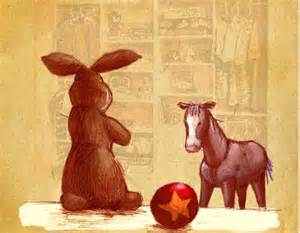 The Skin Horse had lived longer in the nursery than any of the others. He was so old and most of the hairs in his tail had been pulled out to string bead necklaces. For nursery magic is very strange and wonderful, and only those playthings that are old and wise and experienced like the Skin Horse understand all about it. "What is REAL?" asked the Rabbit one day, when they were lying side by side near the nursery fender, before Nana came to tidy the room. "Does it mean having things that buzz inside you and a stick-out handle?" "Real isn't how you are made," said the Skin Horse. "It's a thing that happens to you. When a child loves you for a long, long time, not just to play with, but REALLY loves you, then you become Real." "Does it hurt?" asked the Rabbit. "Sometimes," said the Skin Horse, for he was always truthful. "When you are Real you don't mind being hurt." "Does it happen all at once, like being wound up," he asked, "or bit by bit?" "It doesn't happen all at once," said the Skin Horse. "You become. It takes a long time. That's why it doesn't happen often to people who break easily, or have sharp edges, or who have to be carefully kept. Generally, by the time you are Real, most of your hair has been loved off, and your eyes drop out and you get loose in your joints and very shabby. But these things don't matter at all, because once you are Real you can't be ugly, except to people who don't understand." "I suppose you are real?" said the Rabbit. And then he wished he had not said it, for he thought the Skin Horse might be sensitive. But the Skin Horse only smiled. "The Boy's Uncle made me Real," he said. "That was a great many years ago; but once you are Real you can't become unreal again. It lasts for always." from The Velvetween Rabbit, by Margery Williams ºººººººººººººººººººººººººººººººººººº My late rebbe, R' Zalman Schachter-Shalomi, zt"l, (זכר צדיק לברכה) was a master storyteller. He taught: "a good story is one where the mind surprises the heart". "A Year of Stories" is dedicated to his memory. I invite you to forward the link to these stories so that they find their way into the hearts of other listeners and tellers. ∞∞∞∞∞∞∞∞∞∞∞∞∞∞∞∞∞ Please consider offering a tax deductible donation to support this project and the work of DC's Jewish Renewal community Minyan Oneg Shabbat. A shout out to Judy Young for her generous offering in support of this project. ≠≠≠≠≠≠≠≠≠≠≠≠≠≠≠≠≠≠ If you would like to be added to the growing list of "Year of Stories" followers, let me know at [email protected], with "Year of Stories" in the subject line. |
Mark Novak is a "free-range" rabbi who lives in Washington DC and works, well, just about everywhere. In 2012 he founded Minyan Oneg Shabbat, home to MOSH (Minyan Oneg Shabbat), MindfulMOSH (Jewish mindfulness gathering), and Archives
June 2017
Categories
All
|
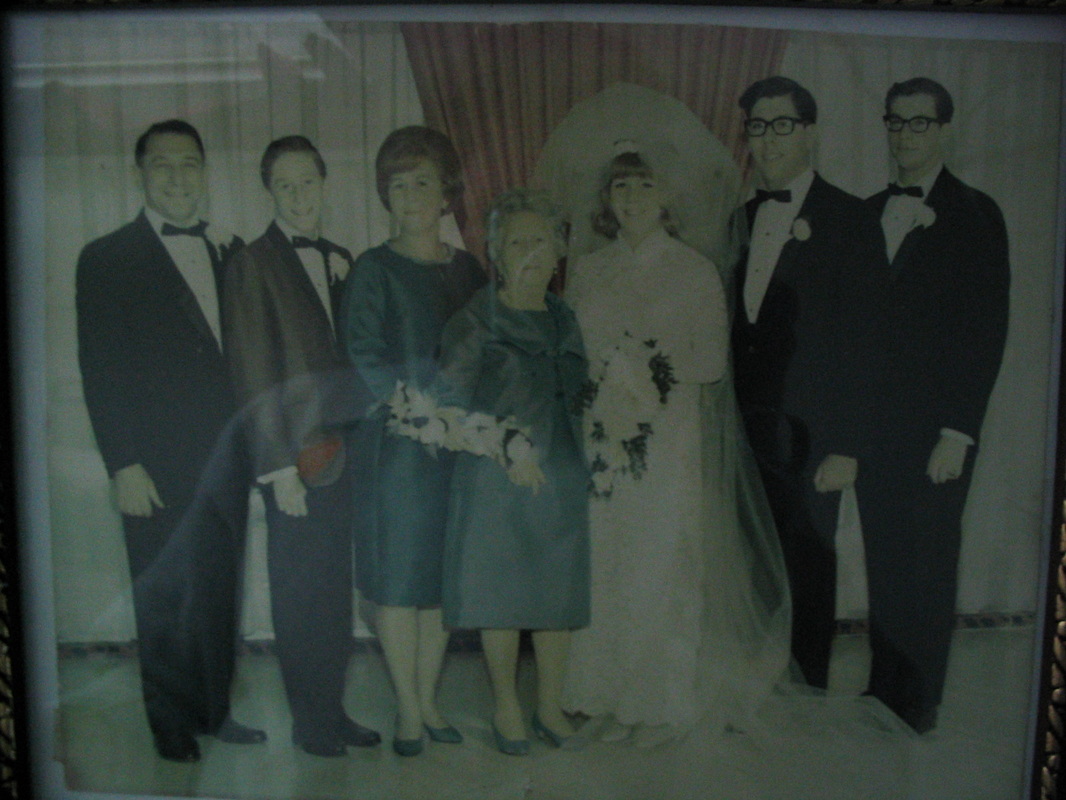
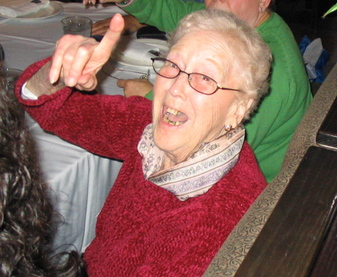

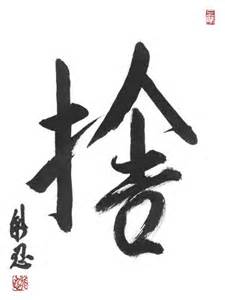
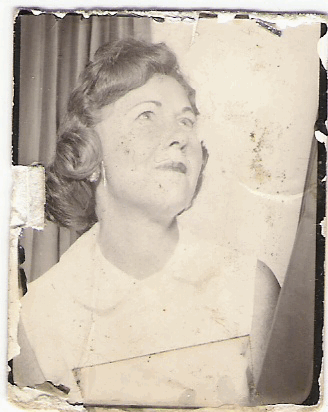
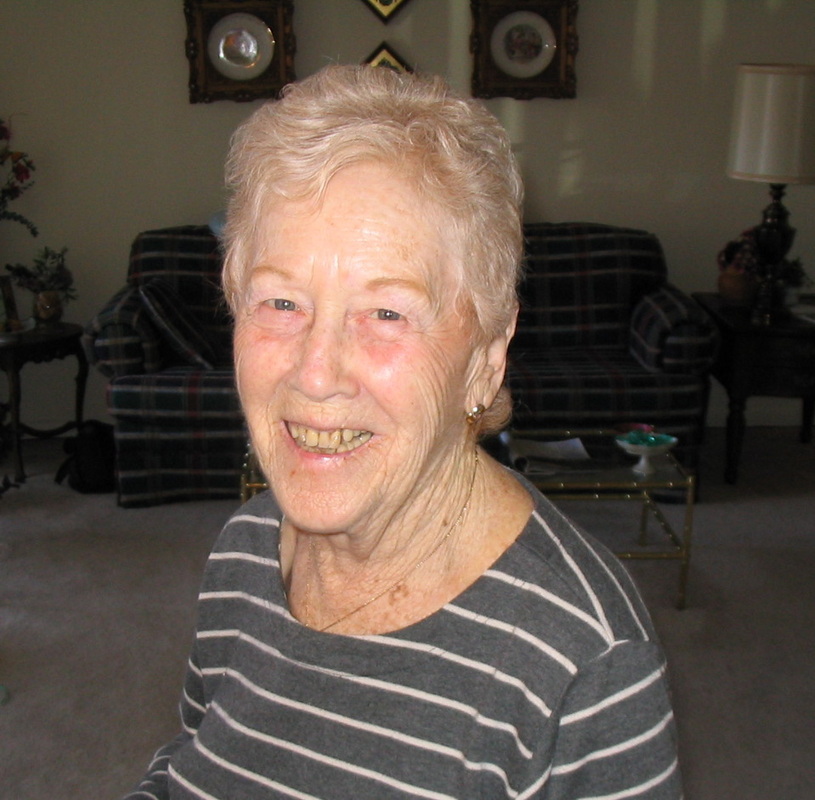
 RSS Feed
RSS Feed
